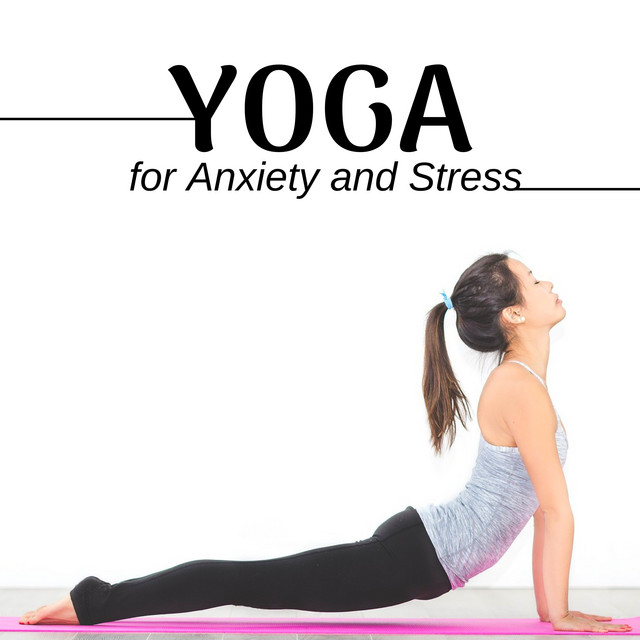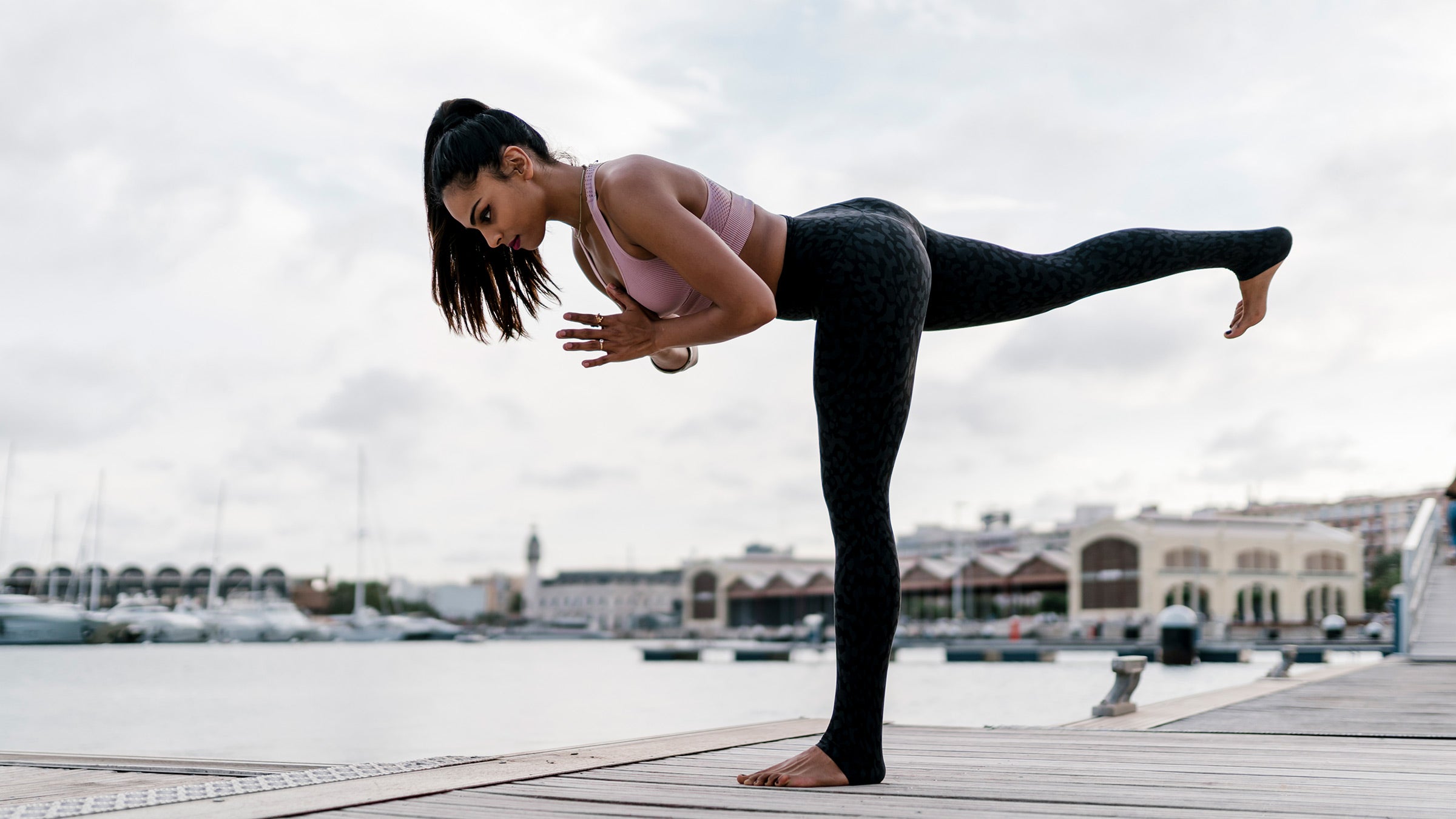
Yoga is an excellent way of increasing flexibility, particularly in the hips, back, and legs. The posture improves blood circulation, blood flow, and stress relief. Begin by lying on your back and extending your legs out in front of you. Fold your hips forward slowly by placing your arms below your shoulders. Hold this pose for up to two minutes. You can repeat the exercise as many times as you need.
Although yoga may seem like a great method to increase flexibility, it has other benefits that go beyond improving your posture. This discipline can improve your health and help you do more poses. Stretching is an integral part of the practice. It takes some time to master these poses but it is well worth the effort. You can begin to tackle more difficult poses once you have reached a certain level.

Standing leg pose: This pose is similar to Downward Facing Dog but you can raise one leg higher. It is important to extend your left leg straight up and point the right leg towards you. Modifying the pose is possible by straightening or bentening your knees. Standing leg pose also encourages you open your hips. To do this, lower your knees towards the ground and place your focus on your tips of your toes.
For the hamstrings, a forward bend will do wonders. This pose can open up your chest and help stretch the hamstrings. You can do this by sitting on the ground, a cushion, or a block. Hold the pose for 30 seconds by squeezing your left hand together with your right. During this time you should be feeling the stretching and release from your shoulder and neck pain.
Half forward bend is the best way to stretch your spine. Place your hands on the floor and spread your fingers. Your arms should be wrapped around your head. This will allow your hips to expand and tighten your hamstrings. To help you reach your full stretch height, you can wrap the strap around the back of your foot if you have strong legs. You can also substitute a belt if you don't have a strap.

Child's pose is a popular pose in yoga and is useful in several ways. It is a resting position that aids in stretching the spine. It can also increase hamstring flexibility. It's a good choice for beginners. To begin, lie on your back with your knees bent and your legs apart. Next, extend your legs 90 degrees and place your hands below your shoulders. Keeping your head and neck up in this pose will help your lower back muscles.
FAQ
What should you do if your mental health is in crisis?
When you have any kind of mental health problem, it's important to seek treatment. It is possible that you have been subject to abuse or trauma in the past. You might have experienced trauma or abuse in the past.
You might also have an eating disorder, addiction or other type of mental illness. These disorders can cause significant damage to your personal and professional life.
You shouldn't try to deal with them on your own. Instead, talk to someone who can help you. Professional therapists can help you overcome these obstacles.
What does a psychologist say about mental health?
Psychologists believe mental health is an important part of human growth. Psychologists also believe mental health is about more than having no mental illnesses. It's also about being mentally fit.
Psychologists have different views regarding mental health. Psychologists believe that mental health does not need to be important because so many people do not have mental illness. Others feel that mental well-being is vital because it allows us to function properly.
What causes mental health problems in adolescents?
Adolescence marks a period in which we begin to develop our identities. We begin to figure out who we are as individuals and where we fit into society.
During this time, we also develop new friendships and romantic relationships. These experiences can cause stress.
While stress is normal, you should seek out help if your stress levels are higher than usual.
Although you may think you can handle it all on your own sometimes you need someone to talk to.
During times when you are stressed, your friends and family can help. They can also help you learn ways to deal with stress.
Meditation or exercise are two options. Both can reduce stress.
You can also join a group like a church, sports team or church. You will meet new people and make new friendships.
How can you improve your wellbeing?
A person's well-being can be defined as their "state of mental, physical, spiritual, or social well-being". There are many factors that affect our well being, including work, family, health, relationships and finances. The first step to improving your well-being is identifying what aspects of your life need improvement. Then, try to change these things for the better.
These are five ways you can improve your well-being.
-
Exercise – Physical activity increases endorphins that make us feel happier.
-
Sleep - Sleeping more than 6 hours per night decreases stress and anxiety.
-
Nutrition – Healthy foods such as fruits & vegetables can boost your mood.
-
Meditation - Regular meditation reduces stress and anxiety.
-
Socialization – It's important to spend time with loved ones and make friends.
Why is it important to have a healthy mind?
Play, work, learning, and love are all important. When we talk about mental health, we're talking about our overall wellness. Mental health refers to the many factors that affect us daily, including our physical, psychological, spiritual, social, and environmental well-being. There are many methods to care for yourself physically, mentally, emotionally and spiritually. You don't need to do it all at once. Start somewhere.
Understanding where your mental health stands now is the first step toward improving it. Take this quiz to find out if you're doing enough to support your mental health. You might consider changing your lifestyle if you have a low score.
Suppose you scored high, congratulations! Let's now look at what you can do to maintain or improve your mental health.
-
Get enough sleep You can keep your brain sharp, energized and alert by getting enough sleep. Try to get 7-8 hours of sleep per night, which is about the amount recommended by the American Academy of Pediatrics (AAP).
-
Exercise Regularly. Exercise releases endorphins in your body which makes you happier and less likely to stress. You should aim to exercise for 30 minutes five times a week.
Why is mental health so important?
Everyone's mental health is important. Mental health is essential for everyone. It is important to have a healthy mind.
When our minds aren't in the best place, our bodies start to show signs and symptoms of stress. This could cause problems in the body such as backaches, stomachaches, headaches and stomach pains. It is important to take care for our bodies and minds in order to maintain a healthy balance.
What is Positive Psychology and Why Is It Important?
Positive psychology focuses on what makes us feel better about ourselves, such as happiness, optimism, gratitude, hope, love, kindness, compassion, forgiveness, courage, humility, curiosity, empathy, spirituality, and meaning. Positive psychology seeks to make individuals happier, healthier and more intelligent through self-improvement.
Two types of positive psychology exist: trait positive psychology (or process positive psychology). Trait positive psychology studies the natural behavior of people. How we can use certain strategies for achieving specific goals in process positive psychology
Statistics
- In any given year, an estimated 18.1% (43.6 million) of U.S. adults ages 18 years or older suffered from any mental illness, and 4.2% (9.8 million) (healthypeople.gov)
- It means no drinking any alcoholic beverages and no taking any drugs that aren't 100% natural.
- Similarly, for positive mental health, there is likely to be substantial agreement about some typical components (e.g., resilience to stress) 6, and controversy about more atypical components (e.g., career consolidation). (ncbi.nlm.nih.gov)
- Appropriate nutrition and exercise are likely among the most efficacious and cost-effective positive mental health interventions. (ncbi.nlm.nih.gov)
- More than 40 million adults in the United States have an anxiety disorder, but less than 37% of people seek mental health treatment for their symptoms. (talkspace.com)
External Links
How To
How to Improve Your Memory
Memory is something that everyone would love to be able remember better. But unfortunately, memory loss is something that happens to us all at some point in time. More than half (50%) of Americans over 65 have some form of dementia.
You have many options for improving your memory. These are three easy steps you can do today to improve your memory.
-
Increase your intake of fruits and vegetables. The antioxidants, vitamins, minerals and fiber found in fruits and vegetables can help boost brain function. They are also rich in essential nutrients that help prevent neurological diseases.
-
Get Enough Sleep. Low sleep quality has been linked both to memory loss, poor concentration, and memory loss. Get seven to 8 hours of uninterrupted sleep every night.
-
Take A Walk. Walking increases blood flow to the brain which can improve memory. Plus, walking helps keep weight off your belly, so you look slimmer and healthier.